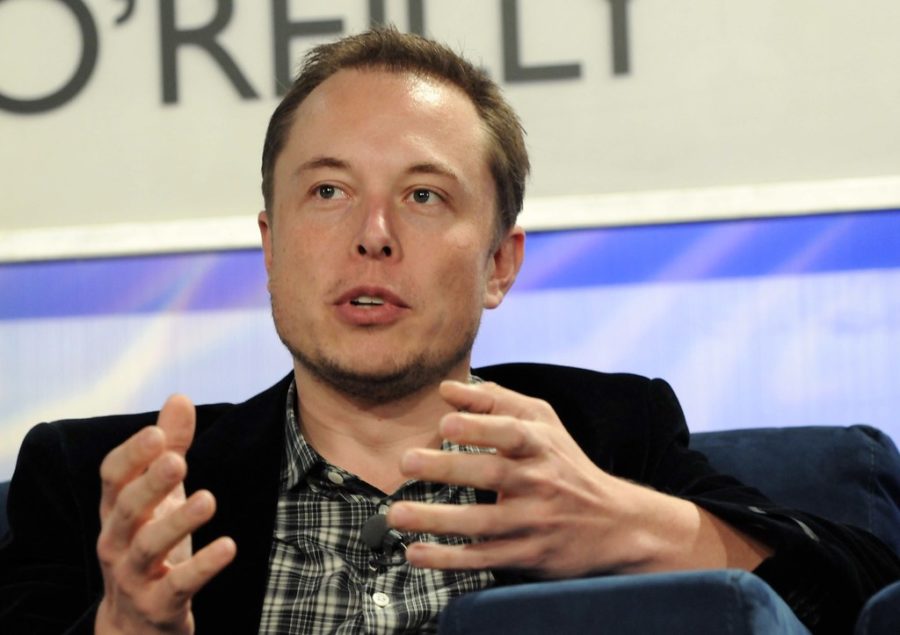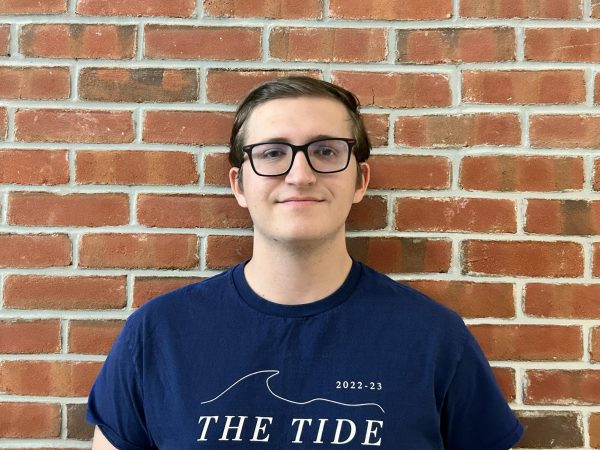Spotlight on Twitter: Elon Musk’s Twitter takeover incites confusion and concern
Photo Courtesy of Creative Commons
Elon Musk’s buyout of Twitter is met with controversy as many question his promise to make Twitter a free speech social media platform.
May 29, 2022
Extremely wealthy billionaire and co-founder of Tesla, SpaceX and the Boring Company Elon Musk has recently acquired Twitter for an astonishing $44 billion dollars and intends to pull the company from the public stock market. With another multi-billion-dollar corporation under his belt, Elon Musk appears to be the champion of swift change in the tech industry. However, employees, management experts and industry professionals are wary about the sudden and hostile nature of Musk’s Twitter takeover.
Twitter is well-known by many as a platform fueled by discussion and often conflict among users. Though his influence is great, Elon Musk may find it difficult to ameliorate Twitter’s darker side: ruthless and endless arguments between heated and often famous individuals.
Chaos erupted around the erratic nature of Musk’s acquisition. He is currently being investigated by the SEC for the late disclosure of his earlier purchase around March 24, which made up 9.2% of Twitter’s common stock and amassed approximately $513 million in total. According to The Wall Street Journal, the SEC probed his tardy submission of a public form that essentially tells shareholders that an influential investor has acquired over 5% of a company’s stock and may seek further influence over that company. Musk had filed the form on April 4, over ten days after his purchase, without explaining his reasoning to the public.
This is not Musk’s first rodeo with the SEC. In 2018, the figure claimed that he had secured funding to take Tesla private at $420 a share, which prompted a six percent rise in the company’s stock price but turned out to be misleading. As a result, Musk was forced to pay a $20 million fine, give up his position as chairman of Tesla’s Board, and agree to have certain Tweets reviewed by Tesla lawyers.
According to Dr. Daniel Taylor, an accounting professor at the University of Pennsylvania, “Mr. Musk likely saved more than $143 million by not reporting that his [Twitter] trades had crossed the 5% threshold.” In the form he had used to disclose his Twitter purchase on April 4, Musk claimed that he was only a “passive investor,” although a few days later, he changed his mind, submitted another form that “showed deeper involvement,” and was later offered a seat on Twitter’s Board of Directors.
After rejecting the seat, Musk submitted an offer on April 14 to buy the entire company at a premium of $54.20 per share. The deal must be approved by the company’s shareholders but has hit delays. On April 13, Musk requested details surrounding the company’s calculations that less than 5% of users are bots, according to CBS News, putting the transaction “temporarily on hold.” The unusual behavior leading up to and throughout this acquisition sent confusing and mixed messages to employees, investors and the public.
The future of current Twitter’s management is up in the air. According to employees familiar with Musk, via the Washington Post, Elon Musk may make some significant Twitter personnel changes. He has a history of firing employees at Tesla that had disagreed with his way of thinking, and he may carry that outlook to Twitter.
Management experts familiar with the matter pointed out that workforce changes or resistance can cause issues during a major transition. Musk, who has never run a social media platform before, could benefit from the immense experience of employees, managers and policy writers who have made considerable progress in the sector. Without any prior experience in the social media industry, being at odds with Twitter’s employees will only slow down any potential improvements Musk may propose.
Poor communication efforts within Twitter have already sparked frustration. Workers expressed concern that “firebrand Musk” might damage Twitter’s company culture and make people’s jobs harder; observers and misinformation researchers agreed.
According to audio received by The Washington Post from an internal town hall at Twitter, current CEO Parag Agrawal “was vague in his answers about changes to the company’s approach to free speech and safety, and even whether the company will continue to make money from advertising. He didn’t address questions about whether Trump would be allowed to return to the platform.” Perhaps, Musk will answer all of these questions and more in the upcoming weeks.
Twitter’s assertive stance against misinformation has gained traction in recent years, especially following the heated 2020 Presidential Election and the Jan. 6 riots a few months later. Engineers at Twitter have spent years building tools to lessen spam, disinformation and hate speech on the platform.
This admirable and ethics-focused corporate mindset is partly what makes Twitter stand out from other competitors like Facebook and Instagram. “I think that nothing will fundamentally change with like Elon Musk in charge, because I don’t really think anybody can do anything to make Twitter better because it’s already […] totally irreparable, […] and I find a lot of things about [Musk] very, personally, very unflattering, very unsavory,” sophomore Joshua Fan said.
In the past, Musk has criticized Twitter’s censoring decisions. He believes the world’s “de facto town square” should do more to protect users’ freedoms of speech. His analogy and ideology are somewhat reminiscent of a previous attempt at a safe haven for free speech, geared towards political conservatives, called Parler. “If anything, it feels like it’s either a meaningless platitude or it’s just a straight-up right-wing dog whistle,” said Fan.
Parler, marketed as a free-speech sanctuary, was banned from Apple’s App Store and Google’s Play Store and their servers had been disabled by Amazon following the January 6th insurrection at the US Capitol in 2020. The companies said Parler had failed to adequately address violent threats and hateful content leading up to the riot.
Parler’s reputation had been tarnished significantly. Vendors, lawyers, server hosts and reputable companies would rather not conduct business or be associated with them. If Musk holds his promise of free speech and little-to-no moderation, Twitter would become more susceptible to political extremists, hate speech/images and other unforeseeable threats; there is an unfortunate possibility that Twitter could meet the same fate.
While Musk’s vigorous defense of free speech is commendable, his goals may not come to fruition for a variety of reasons. Many professionals and grassroots advocates of fact-checking and accurate media coverage would likely concur with the moderate censorship policy Twitter has adopted. “I think censoring people is fine. […] A lot of the time, people who got banned or suspended on Twitter kind of deserve it. And also, […] it’s Twitter, who really cares. It’s not such a life-ending thing,” said Fan.
Musk’s experience primarily lies in mass-producing Tesla’s fleet of electric vehicles and rushing to deliver as many of his cars as possible. Bringing an ethos of speed over quality to Twitter may cause some oversights in the social network’s operations and could affect a very large user base. Elon Musk already works 80 hours a week and is heavily occupied with managing Tesla and SpaceX, both of which are industry leaders. It is impossible to tell how much time Elon Musk will actually dedicate to making the “de facto town square” a haven for free speech.
Musk must be careful as he leads Twitter into dangerous territory. An inherently political network, he must remain neutral while upholding the integrity of the platform. He should gather insights from experienced Twitter workers and users to best improve the platform for the people. To retain the company’s top talent, Musk should effectively collaborate and be open to compromise. Now is the time to leave a lasting positive impact on how we use social media to communicate with our friends, family and the world.



